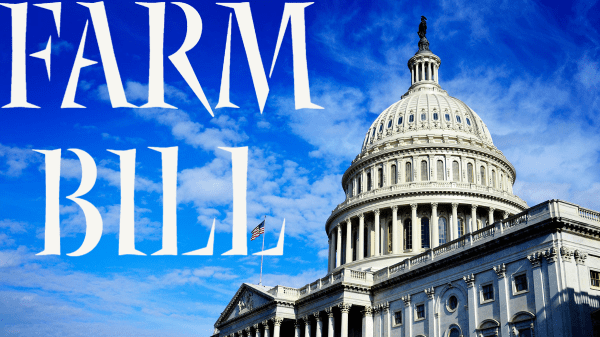The big news to hit the agricultural community over the past few days is the one-year extension of the federal farm bill, enacted by Congress and signed by President Biden on November 16.
Congress now has another 10 months to work through a full five-year farm bill. But as the Politico website pointed out, “Congress leaves a long ag to-do list” as it adjourns this week.

“The extension keeps a number of key programs from careening over funding cliffs and allows USDA to continue operating farm programs under the 2018 law,” Politico notes. But “neither chamber’s Agriculture Committee has introduced a new farm bill, or even circulated text, as they continue to work through various funding disagreements.”
“The extension means that the more than 41 million participants in the Supplemental Nutrition Assistance Program (SNAP) will continue to receive benefits through Sept. 30 [2024],” says Reuters.
It’s a different story with the Women, Infants, and Children (WIC) nutrition program, because it’s not included in the farm bill. Consequently, the program has only been extended to January 19—less than two months away.
Republicans have been pressing for cuts to nutrition and conservation programs to bolster commodity price supports. But Senate Agriculture Committee chair Debbie Stabenow (D-MN) insists, “We absolutely are going to continue to keep that money in there.” When asked where money could come from to meet Republican demands, Stabenow said bluntly: “We’ll see, but it’s not coming from conservation, and it’s not coming from nutrition.”
The farm bill extension lasts until September 30, 2024—five weeks before the election. If worst comes to worst (as it has been doing) and Congressional brinksmanship pushes the deadline down to the wire, it is hard to imagine any such bill passing during the most feverish season of electioneering.
It certainly looks possible that the farm bill will be pushed along yet again until it is taken up by the next Congress in 2025.
“While an extension is necessary, they’re running out of time to write a new bill,” commented Zippy Duvall, president of the American Farm Bureau Federation. “We need a new farm bill in early 2024. The farm bill affects every American by helping to ensure a safe, stable, and affordable food supply. Let’s make sure we get it right in 2024.”
All sides in the issue would no doubt agree with Duvall’s comment. But they wouldn’t agree about what “getting it right” might mean.



